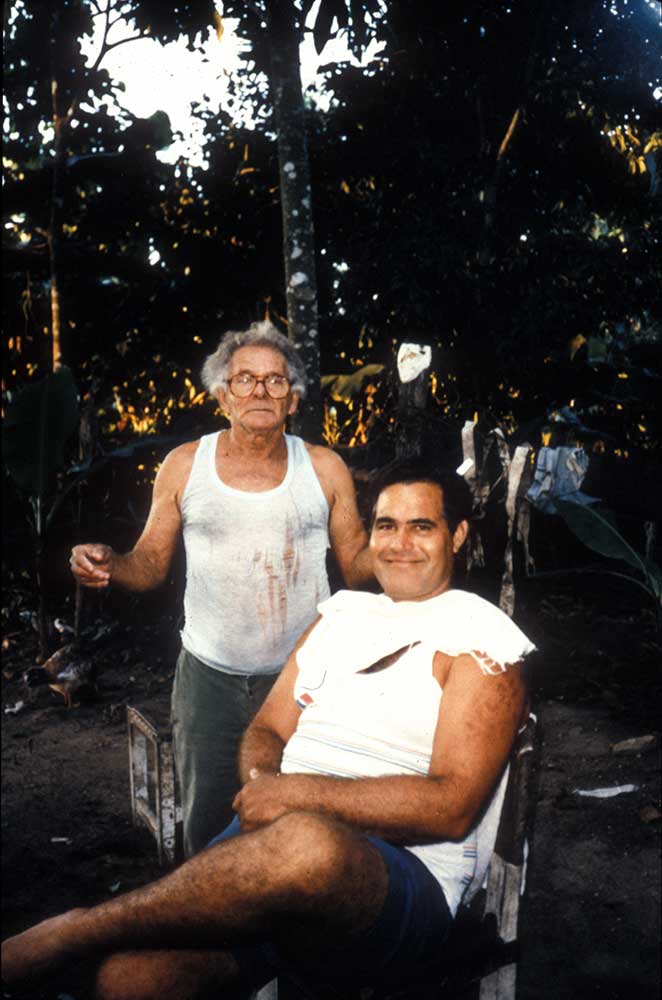In March 1968, Fidel Castro unexpectedly announced that the Cuban state would shutter and confiscate all remaining 52,000 small businesses in a policy maneuver he called La Ofensiva Revolucionaria [the Revolutionary Offensive]. He also announced that they would re-open—supposedly as quickly as the following day—under the new management of Cuba’s most loyal citizens, that is, the top members of Cuba’s vast network of neighborhood informants, spies and watchmen known as Committees for Defense of the Revolution. While self-employment suddenly became illegal, many Cubans managed to get away with continuing to sell their skills and services because there were never enough government-owned replacements to satisfy demand or basic requirements—such as the need for a haircut. In Las Ovas, Pinar del Río, the older gentleman pictured here remained a barber his whole life, from the 1950s when he was first trained to cut hair. By the 1990s, when he could finally obtain a legal license, he balked: how many generations had relied on him to cut their hair and, in the early days, risked political retribution by paying him for it? Indeed, I never found out what his real name was because everyone I asked around town always had one answer: Barbero.
